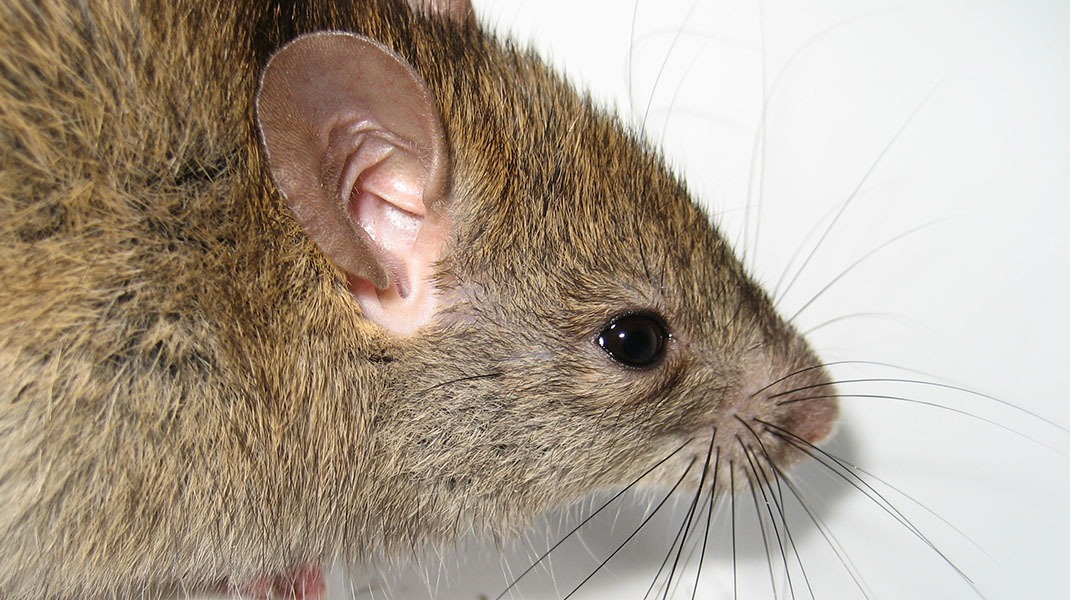Rats

Biology
Rats are rodents that have a larger, stouter body than mice and many other rodents, and will usually have either black and gray fur, which is usually the black rat, or a brown color, which is usually a brown rat. The brown rats are usually larger, and can grow up to 11 inches in length and weigh up to a pound, while the black rats are smaller and will grow up to seven inches in length and weighing up to around half a pound. Both varieties of rats are widespread in areas where there is human habitation, and will usually live for up to a year, although a small number will live to up to 3 years old.
While there are rat populations found in rural areas, the vast majority of rats live alongside people and survive by foraging from human food sources. They have a varied diet and an adaptable digestive system, so their diet can include insects and small animals, fruit, seeds and almost any waste food that is left behind by people and is easily accessible. All rats have a hairless tail that is often as long as the body of the rat itself, and is used in allowing the rat to retain and release heat depending on their situation.
Problems Caused By Rats
One of the biggest issues that come with having rats living alongside people is that they are one of the species that can transmit diseases to people, either through direct contact of by the contamination of food and water sources. These diseases can actually be quite serious, so when it comes to dealing with a rat infestation it is important to make sure that you take appropriate precautions. Rats can also cause issues when they are foraging for food, as they will often find their way into garbage and waste food, along with stealing pet food and domestic food stores as well.
Another of the issues comes with the nesting behavior of rats, as they will often also choose to make their nests in the dark and dry areas around domestic properties. This means that if they do find their way into a domestic property, they can cause damage through their gnawing behavior, along with soiling and damaging insulation with their urine and feces.
Prevention Methods
When it comes to keeping rats away from your home, the most important thing you can do is to manage their potential food sources, as this is usually the biggest factor that will attract rats to the area around your home. Steps such as securing garbage into a sealed container, or at least a dumpster or garbage can with a fairly tight fitting lid will help minimize the spread of the scent that can attract rats. Also, if you have a garden where you like to grow plants or fruit trees, taking measures such as removing fallen fruit, and disposing of unwanted vegetables properly can also help to reduce the risk of rat problems.
Being aware of your property and checking areas where you may not always visit every day can also help to reduce the chances of a rat infestation. When doing this, you should keep an eye out for any gaps in the walls, broken soffits or vents, or any loose spots where a rat could potentially squeeze through to find their way into your home.
Removing Rats Professionally
When it comes to the animal removal experts that will generally deal with rat infestations, there are three main ways in which they will try and deal with a rat problem. Probably the most common method is to use lethal traps that will catch and kill a rat efficiently, and with those who are well versed in the habits of rats, this can deal with the problem quite quickly, but will require several visits. Ultimately, it is important to keep checking the traps until you are sure the problem has been dealt with.
Exclusion is another option that can be used to deal with a rat problem, and this requires a very detailed examination of the property at the beginning, to find all of the spots the rats are using to get in and out. Most of these will then be sealed, with an exclusion funnel installed over the remaining holes, so the rats can get out of the property, but can’t get back in. The third variety of dealing with rats is poison, and this is the approach that really should be avoided. Using toxic poisons around your home can be very dangerous, and it can also lead to rats dying in the walls or attic of the house, which can cause a range of other problems too.
Related Rat Articles
No Results Found
The page you requested could not be found. Try refining your search, or use the navigation above to locate the post.
